In honor of the release of Mint Cooperative from Five24 Labs, I decided to put together a brief review for Mint Works and Mint Delivery. These games are part of the mint games from Five24 labs. Mint Cooperative Kickstarter just launched here (https://www.kickstarter.com/projects/five24labs/mint-cooperative-the-minty-fresh-cooperative-game). I then go through a game design mental exercise to design a sequel of sorts. This is just an exercise for fun and entertainment. Not an actual proposal.
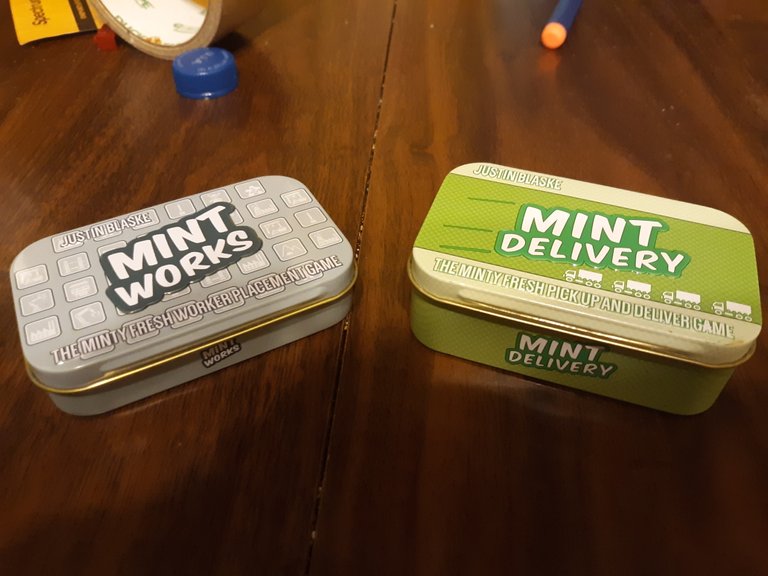
Mint Works is a super fun worker placement game. Players compete to be the first person to score 7 stars from gathering plans and building them into their area. The player at the end with the most stars wins.
Mint Delivery is a pick up and deliver game. Players compete to the most victory stars by completing orders. Each order has a request for a type of mint to be delivered to a city. Once a player reaches that town and fulfills the request they earn the listed victory stars. Once two or more cities are empty of requests the game ends and final scoring begins. The player with the most victory stars at the end wins.
Both games are super fun. They come in little tin cases about the size of an Altoids can. Both have a small table space footprint, are quick to set up and make for great in between games. I have been able to introduce family to board gaming with Mint Works. The games retail about $13 USD. For that price point and the plays, I have gotten out of it makes that price definitely worth it. I have several copies in various places one at work, one in the car, and one in my RPG Bag. If I need a quick and fun game they’re always handy to have.
Now to the game design.
For this article, I decided to stretch my game developer creative juices a bit and write up a mock proposal for a Mint Legacy game. We’ll find out if it is any good from the developers at some point I’m sure. However this is in no way a professional proposal, nor is it meant to sway Five24 labs into completing the design presented. I mean sure if they wanted to use it and hire me I wouldn’t object of course. But the goal of this is to simply be creative. It is to show my design process. It is also to show off Mint Works, Mint Delivery and help spread some love for Mint Cooperative available on Kickstarter (https://www.kickstarter.com/projects/five24labs/mint-cooperative-the-minty-fresh-cooperative-game).
A brief recap.
The “Mint Collection” from Five24 Labs is a series of minty fresh games with a whole lot of fun in a small container. Each game contained in these small tin cases is a really fun experience.

Mint Works is a worker placement game. Players compete to be the first person to score 7 stars from gathering plans and building them into their area. The player at the end with the most stars wins.
Mint Delivery is a pick up and deliver game. Players compete to the most victory stars by completing orders. Each order has a request for a type of mint to be delivered to a city. Once a player reaches that town and fulfills the request they earn the listed victory stars. Once two or more cities are empty of requests the game ends and final scoring begins. The player with the most victory stars at the end wins.
Looking at our core reference material.
The whole appeal of the mint collection games is a small size. It all has to fit in a small package. This is where the challenge comes in because typically legacy games are HUGE compared to the size of the mint collection of games.
A few brief brainstorming questions before diving in.
What challenges face us?
The goal of the game?
What are the limitations?
What are our inspirations for this?
A Legacy Game?
The idea of a legacy game is you play it a few times and each time you play it the game physically changes. In the case of the Pandemic Legacy series, you play through 12 or 13 months of play. One story progresses depending on how your games go. At the end of the game, you are done. There isn’t any more replay ability. The players play cooperatively and they either succeed or fall cooperatively.
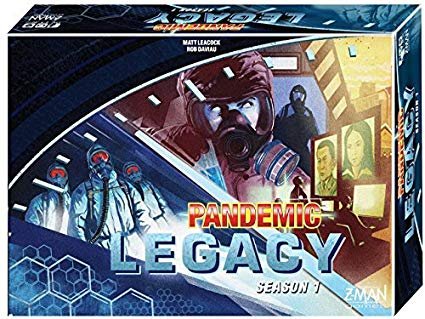
In Betrayal at House on the Hill Legacy, you progress through a series of games telling the story of the house and its inhabitants. As you progress through the game a story develops with the different families. In the end you have a unique copy of Betrayal at House on the Hill with a unique story of the house crafted by those who played it.
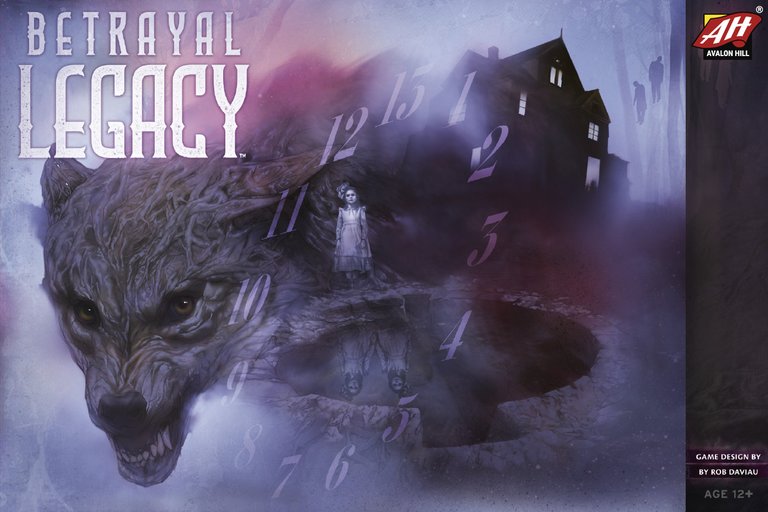
In Charterstone the goal is to build a unique series of village areas where each player has a place to play workers to. While each player is trying to see how good their score will be for the legacy portion of the game is definitely not cooperative. It does have some well-crafted story to it which is fun. In the end you have a unique worker placement game to play with your friends.
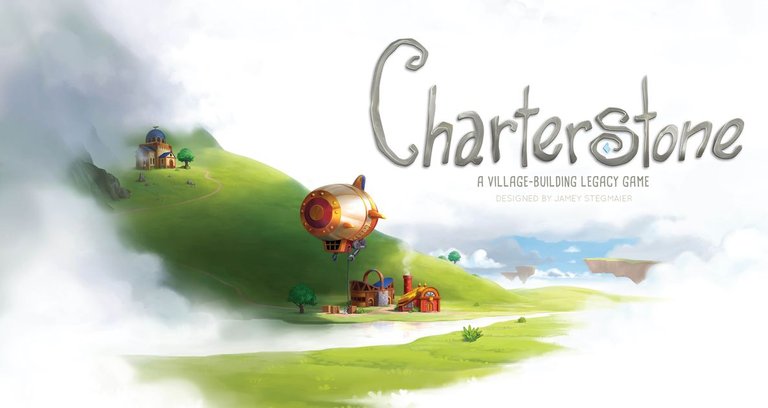
The thing with a Legacy game is it has the opportunity to build to the final mechanics Game 1 is different from Game 5. Even though Game 5 has elements of game 1 through 4 in it while adding its own game elements for future games.
Seeking answers to questions.
What challenges face us?
Designing a game that has depth but also a small size. Personally I like the legacy games that keep players coming back over and over again.
The goal of the game?
That’s a puzzler, isn’t it? If you have a legacy game you can tell a story or have one conquering victor or multiple. Is the goal to have one unique game at the end, or to have it be over with a limited number of playthroughs.
One of the appeals of the Mint Collection games is the quick play-ability. You can pick up the game, set up fairly quickly and get right into the game. Following this I think a re-playable game at the end is a big key element.
+1 Goal of the game: Replay-ability.
Size is definitely a factor to our game. Having a powerful game that is re-playable in such a small size will be key. This is a problem I see is a big factor in this is. The game could start out with a large box and then break into smaller components as players play through it. Maybe each player walks away with their own game?
When looking at the size one has to consider the cost of it as well. Looking at the original games, Mint Works and Mint Delivery retail around $10-$15 USD. Most legacy games will retail anywhere from $20 upwards of $100. Granted this will be towards the end of the project figuring out cost. However, having that idea upfront does tend to help from over design.
Where do we find inspiration?
Following the inspiration from the Space Base expansion of the Emergent of Shy Pluto, the game has a story element as you play through scenarios. Each scenario adds something new to the core game play. Once the main story is done you can add the expansion elements to the base game which changes the game play.
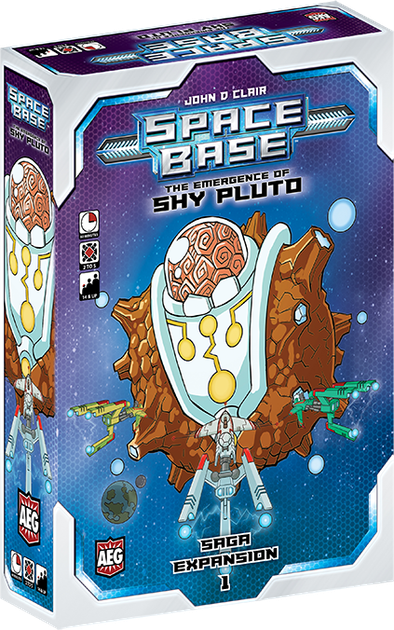
Another game I’m picturing for influence is Terraforming Mars. I like Terraforming Mars for the tile-laying, the multiple victory conditions needed, and the upgrade cards are a handy resource.
I’m not sure if a Deckbuilding element will be well for this kind of game. Deckbuilders are fun but they have a lot of components in them. Keeping it simple allows for more development within the tin storage.
I like elements from the game Suburbia and Palace of the Mad King Ludwig. These games are tile-laying games that trigger certain actions when played.
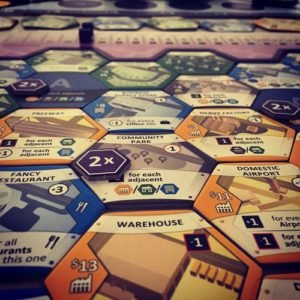
What design do we come up with?
I am picturing a game where each player is a mint salesperson. They are trying to gain reputation in different territories. The main game contains enough containers for 6 players. Each player gets a tin container, a car meeple, a dice, influence tokens, Sales Territory Stickers and some mint tokens of their color. Each “sales” territory is a hexagon set in the middle of the map. Expanding out from the center. There could be a grid similar to Terraforming Mars. Laying tiles down to form a territory growth
Each player has a set of ability cards starting off. These cards provide each player with a unique ability going forward. During color selection, these cards could be drafted out. During each game, players draft a new ability card.
The hex tiles of the game contain a threshold of influence. As players move through unclaimed territories if they are carrying mint tokens they gain a bonus to their dice roll. When they roll they make sales contacts. Adding their influence tokens to the tiles. If their roll is higher than the number of influence tokens there they get to add another token. If it is lower, they don’t. Ability cards may change these rolls or rules.
I’m thinking throughout the game players will gain permanent territories. These could be cards that list the territories on there similar to monopoly. Or it could be hex stickers placed on the territories themselves.
Game 1.
This shows the basic move and gain sales.
The entirety of the city are territories within Mintopia. Center is the home office. A single (6 tiles) or double ring (18 tiles) of random sales territories are placed around. These could be gray tiles starting out. I’m picturing these tiles as just sales tiles. They can’t be claimed, only gain sales from. Each player puts their meeple car in the center.
Starting off players draft their playing abilities. These are the players' 2nd abilities and should be simple. Dice re-roll, extra move, extra sales when rolling,
Sticking with the stars motif. The victory conditions for this one could be simple sales earned.
Game 2
This shows earning territories.
This game is set up like the first one. The home office is in the center. New tiles are presented. These tiles are enough to make a second ring. The new tiles contain more general tiles, 1 tile that is colored matching the players colors, and tiles that have influence numbers on them. Mixing the first set of tiles from game 1 and these new tiles will form 2 more rows. I would include extra tiles. After the first 2 rows are counted out. The third-row tiles are counted and then added. The extra tiles would be discarded for this event.
Players are given their territory tokens. When players go into a new territory they try to roll sales. Gain influence and gain territories.
The series of games would progress like this building upon itself.
The final outcome would be a unique game of territory grabbing and sales. Each players decks would be different in the sense that every game they gain new abilities and access to new territories.
There would need to be a lot of testing and more design. Getting other ideas on this would be very key to success. The way design goes these core ideas may change over the design process.
What are your thoughts? Do you think this is has some good elements to it?
Thanks for checking out Mint Legacy - Proposal. Be sure to check out Mint Cooperative live on Kickstarter. https://www.kickstarter.com/projects/five24labs/mint-cooperative-the-minty-fresh-cooperative-game
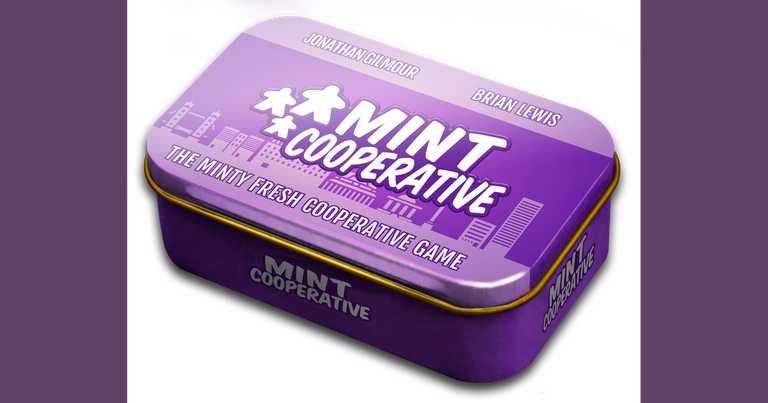
Who am I?
Joe DeMarco a single father, freelance writer, and software quality assurance analyst by my day job. I am a big-time gamer, and really enjoy checking out all kinds of games available. Putting my curiosity to the app store I find random games to check out.
If you have a game you'd like me to review, contact me and let us see how we can work together.
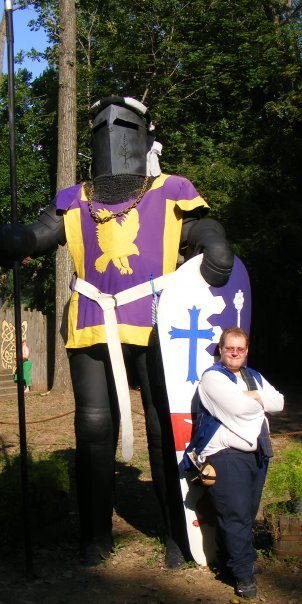
Wow! I did not know that this type of game existed, how cool and fun it looks, I am not a fan of games but this one moved me ♡
Pd: My favorite photo is the last haha
Thanks so much for the reply.
The last photo was taken at the Kansas City Renaissance Festival a few years back.
Hi shad0fx,
Visit curiesteem.com or join the Curie Discord community to learn more.
Congratulations @shad0fx! You have completed the following achievement on the Steem blockchain and have been rewarded with new badge(s) :
You can view your badges on your Steem Board and compare to others on the Steem Ranking
If you no longer want to receive notifications, reply to this comment with the word
STOPVote for @Steemitboard as a witness to get one more award and increased upvotes!